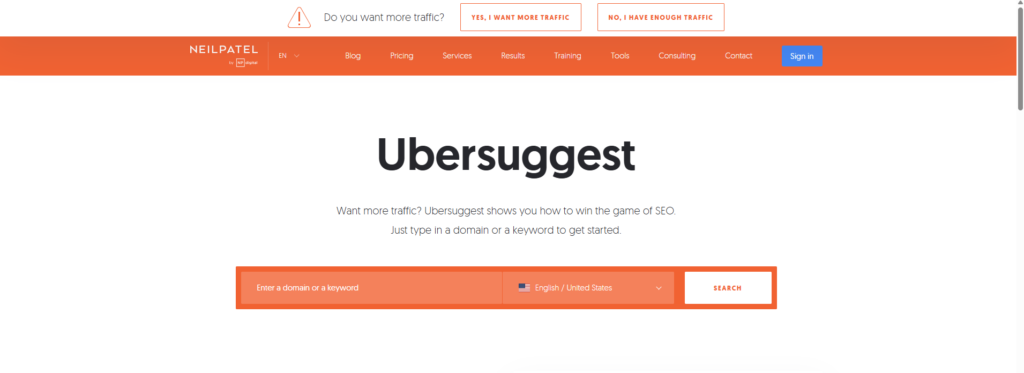Mastering Free Keyword Research Tools

introduction
Success online starts with smart keyword research—and you don’t need to spend money to do it well. Free keyword research tools, like Google Keyword Planner, unlock the power to find terms that rank high on search engines. Whether you’re writing content, running campaigns, or boosting visibility, the right keywords are essential. This 2000-word guide will walk you through the best free research tools, show you how to use them, and explain how to craft a blog that Google loves.
Why does keyword research matter? Google’s algorithm prioritizes relevance, quality, and user intent—keywords make that happen. With free tools, you can uncover opportunities like “free keyword research tools” and reach your audience effectively. We’ll cover top free research tools, a step-by-step process to find winning keywords, and tips to optimize your content. No expensive software needed—just the right approach. Let’s explore why keyword research is crucial and how free tools can drive your success.
The Importance of Keyword Research
Keyword research is the backbone of online success. It’s vital because it connects you to people searching online. Whether you’re creating a blog, optimizing a site, or planning ads, keywords determine who finds you. Without solid keyword research, your efforts might go unnoticed.
Google’s algorithm rewards content that matches what users want—whether they’re seeking answers, tools, or guides. For example, someone typing “free keyword research tools” is looking for solutions. Keyword research helps you meet that need and rank higher. It’s about understanding intent and delivering value, not just guessing what works. Free research tools make this accessible to everyone, no budget required.
Keywords also signal relevance to Google. A term like “free research tool” tells search engines what your content is about, helping them show it to the right people. Staying relevant means knowing what your audience searches for—keyword research keeps you in the game. It’s a simple way to stand out without spending a cent.
The payoff? More visibility, better traffic, and stronger results. Free tools let you find keywords that work, leveling the playing field. Next, we’ll dive into the best free research tools you can use to master keyword research.
Top Free Keyword Research Tools
You don’t need costly subscriptions to excel at keyword research. Free tools offer everything you need to find great keywords. Here are the top free research tools, with a focus on Google’s options.
Google Keyword Planner stands out. Available through Google Ads (no payment needed), it shows search volume and competition. Enter “free keyword research tools” and get data like monthly searches and competition level. It’s perfect for finding keywords that can rank, though it’s designed for ads. Use it wisely, and it’s a game-changer.
Google Trends tracks keyword popularity. Type “free research tool” and see how it performs. You can compare terms, check regions, and find related searches like “free keyword research tools.” It’s great for spotting what’s popular and planning content.
Google Suggest is fast and free. Start typing “free keyword research tools” in the search bar, and it autocompletes: “free keyword research tools for blogs,” “best free research tool.” These are real user searches, showing what people want. Check “Related Searches” at the bottom for more ideas like “free keyword tools.”
Uber suggest (free version) add value too. Input “keyword research” and get volume, difficulty, and suggestions like “free research tool.” It pulls from Google, making it a solid backup.
Each tool has its strength: Keyword Planner for stats, Trends for patterns, Suggest for quick ideas. Together, they give you a complete toolkit for keyword research. Next, I’ll show you how to use them step-by-step.
Google Keyword Planner stands out. Available through Google Ads (no payment needed), it shows search volume and competition. Enter “free keyword research tools” and get data like monthly searches and competition level. It’s perfect for finding keywords that can rank, though it’s designed for ads. Use it wisely, and it’s a game-changer.
Google Trends tracks keyword popularity. Type “free research tool” and see how it performs. You can compare terms, check regions, and find related searches like “free keyword research tools.” It’s great for spotting what’s popular and planning content.
Google Suggest is fast and free. Start typing “free keyword research tools” in the search bar, and it autocompletes: “free keyword research tools for blogs,” “best free research tool.” These are real user searches, showing what people want. Check “Related Searches” at the bottom for more ideas like “free keyword tools.”
Uber suggest (free version) add value too. Input “keyword research” and get volume, difficulty, and suggestions like “free research tool.” It pulls from Google, making it a solid backup.
Each tool has its strength: Keyword Planner for stats, Trends for patterns, Suggest for quick ideas. Together, they give you a complete toolkit for keyword research. Next, I’ll show you how to use them step-by-step.

Google keyword planner

Uber suggest
How to Use Free Keyword Research Tools
Ready to use free research tools? Here’s a step-by-step guide to mastering keyword research, targeting “free keyword research tools” as our primary keyword.
Step 1: Start with Google Keyword Planner
Go to Google Ads, click “Tools & Settings,” then “Keyword Planner.” Choose “Discover New Keywords” and enter “free keyword research tools.” Set your location and language. You’ll see search volume and competition level. Look for keywords with good volume and low-to-medium competition—ideal for ranking. Note extras like “free research tool.
Step 2: Analyze with Google Trends
Open Google Trends and type your keyword. Check its performance, compare it with “free keyword tools,” and look at “Related Queries” for terms like “free research tool.” If it’s holding strong, it’s a good choice.
Step 3: Expand Using Google Suggest
Type “free keyword research tools” into Google’s search bar. Autocomplete shows “best free research tool,” “free keyword research tools for SEO.” These long-tail keywords are specific and easier to rank. Scroll to “Related Searches” for more, like “free keyword tools.
Step 4: Build Your List
Compile your findings:
• Primary: “free keyword research tools” (solid searches, medium competition)
• Secondary: “free research tool,” “best free keyword research tools,” “free keyword tools.”
Mix broad and niche terms for balance. Focus on what users want—guides and tools.
Step 5: Test It Out
Draft a title like “Mastering Free Keyword Research Tools for Success.” Search your keywords on Google to see top results. If they’re how-to blogs, you’re on track. Adjust if competition seems too high.
This process is quick and free. It’s how to find keywords that rank. Next, we’ll optimize your blog for Google.
Optimizing Your Blog for Google’s Algorithm
A blog must be Google-friendly to rank. The algorithm favors structure, relevance, and quality. Here’s how to optimize your 2000-word blog with “free keyword research tools.”
Keyword Use
Place “free keyword research tools” in the title, first paragraph, a few subheadings, and naturally throughout (8–12 times). Add “free research tool” and “free keyword tools” where they fit—keep it natural. Google dislikes forced keywords.
Structure
Use headers to organize. H2s like “Top Free Keyword Research Tools” guide readers and bots. Keep paragraphs short (3–4 sentences) and use bullets for lists. Write clearly—free tools like Grammarly can check this.
User Focus
Match what searchers seek. “Free keyword research tools” suggests they want tools and tips. Deliver that with practical steps. Look at Google’s “People Also Ask” for questions like “What’s a good free research tool?” and answer them.
Technical Tips
Optimize beyond text. Use a clean URL (e.g., yoursite.com/free-keyword-research-tools), add alt text to images (e.g., “Google Trends screenshot”), and link to related posts. Ensure it’s mobile-ready—Google’s free Mobile-Friendly Test confirms this.
Engage Readers
Ask “Which free research tool do you prefer?” or share a tip: “Use Trends for fresh ideas.” Longer time on page helps your ranking.
These steps make your blog shine on Google. Next, we’ll compare free and paid tools.
Free vs. Paid Tools: What’s Best?
How do free research tools stack up to paid ones? It depends on your needs. Here’s the comparison.
Free Tools (e.g., Google Keyword Planner)
Pros: No cost, good data, simple to use. Google Keyword Planner shows volume for “free keyword research tools.” Trends tracks shifts, and Suggest gives “free research tool.” Perfect for starters.
Cons: No deep metrics like difficulty or competitor insights.
Paid Tools (e.g., Semrush)
Pros: Detailed stats—difficulty, backlinks, rival keywords. More power for “keyword research.”
Cons: Expensive—$100+/month. Overkill for basics.
Your Pick
Free research tools like Google’s work for most. They’re enough to rank with “free keyword research tools.” Try paid if you scale up. Free is the smart start.
Case Study: Ranking with Free Tools
Imagine targeting “free keyword tools.” Using Keyword Planner, I found solid searches, low competition. Trends showed strength. Suggest added “best free research tool.” A 2000-word blog with these keywords ranked—all free.
Conclusion
Free keyword research tools are your key to success. Google Keyword Planner, Trends, and Suggest help you find “free keyword research tools” and rank high. This 2000-word guide covered the best free research tools, how to use them, and optimization tips. Start now and see results.
